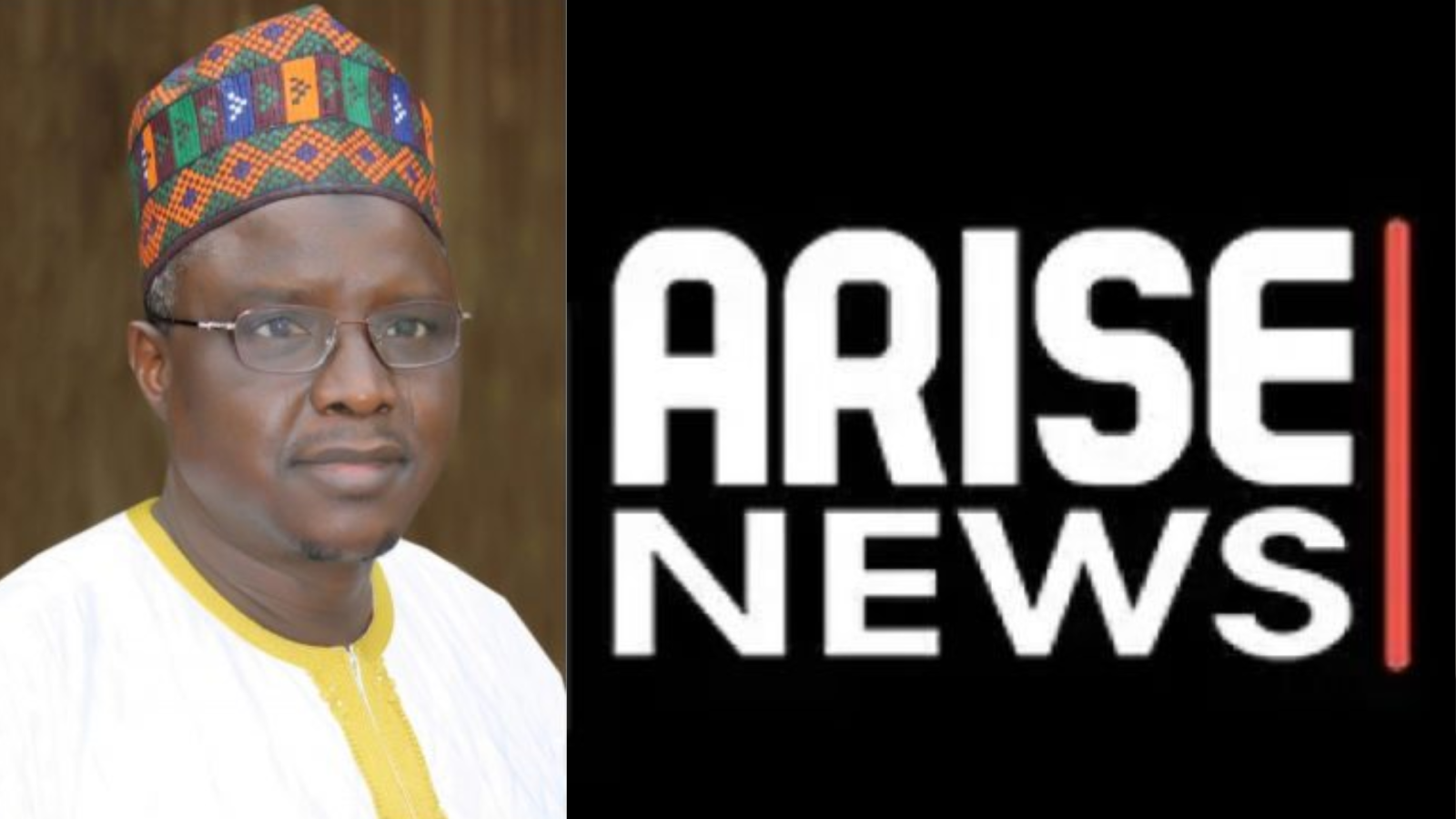
Nigerian Media Complicit In Misinforming Citizens On Risks Associated With Bill Gates-Funded GMO TELA Maize

On August 30, a post on X by Arise News, a Nigerian media outlet, amplified misinformation shared by Ishiyaku Mohammad, the former Executive Director of the Institute for Agricultural Research (IAR) at Samaru. In the broadcast, Mohammad claimed that “[Genetically Modified Organisms – GMOs] rather enrich than degrade soil properties and can be replanted.” publication
Using the familiar “trust the science” framing, Mohammad further downplayed Nigerians’ legitimate concerns about the health and environmental risks of GMOs. He argued:
This safety is not based on emotion. It is on science-based facts of around 30 years of the use of genetically modified crops and their products worldwide, including Nigeria… We just released genetically modified cowpeas, maize, and cotton in this country.”
Framing GMOs as a solution to Nigeria’s food deficit, he added: “The GM technology which produces improved varieties of crops can utilise this technology to improve the productivity of our crops and thereby close the gaps of our national demand deficit.” Notably, Mohammad omitted that insecurity, rather than seed technology, remains the central barrier to food security in Nigeria.
A career academic and former Senior Scientist/Lecturer in Genetics & Breeding at Ahmadu Bello University, Zaria, Mohammad has received funding from the Bill and Melinda Gates Foundation. Yet, in the interview, he insisted: “There is nowhere in any literature, any scientifically proven point that there’s an association between consumption of genetically modified crop products with the development of cancer. I’m not a medical scientist, I’m not a human pathologist, but there is none, nowhere.”
Contradictions
In reality, GMO seeds, such as TELA Maize, are engineered to be resistant to Roundup, a glyphosate-based herbicide owned by Bayer. Roundup, whose resistance to GMO seeds encourages its heavy usage, has been at the centre of $11 billion lawsuits over cancer claims and, in 2015, was classified as “probably carcinogenic to humans” by the International Agency for Research on Cancer (IARC), a branch of the World Health Organisation (WHO).
On seed sovereignty, Mohammad further misled Nigerians, declaring on a network with over 1 million YouTube subscribers: “Nigeria is one of the few countries in the world that has absolute control over its genetic materials in the country. So let nobody ever think that any time will come, either now or in the future, that anybody, either corporate or individuals, will take over the control of our genetic materials and our planting materials.”
The facts, however, tell a different story. The Bill Gates-funded African Agricultural Technology Foundation (AATF), working in a public-private partnership with the National Biosafety Management Agency (NBMA), USAID, Rockefeller Foundation, Bayer (formerly Monsanto), and through Ahmadu Bello University’s (Zaria) Institute for Agricultural Research (IAR), introduced GM TELA Maize in Nigeria. This demonstrates that seed and food sovereignty lie in the hands of corporate entities with patent interests directly connected to Mohammad’s research career.
Even so, he insisted that his work was domestically funded:
“I’m being funded by the Nigerian government. My salary is being paid by the Nigerian government. The federal minister of agriculture, through my university, is sponsoring our work.”
Despite these glaring conflicts of interest, the Nigerian media, particularly Arise News, has continued to amplify GMO advocacy, framing it as a panacea for the national food deficit. Meanwhile, Mohammad, now Director of the Department of Veterinary and Pest Control Services at the Federal Ministry of Agriculture and Food Security, maintains a prominent pro-GMO voice.
Arise News’ decision to broadcast unverified claims has drawn public criticism. One commentator on X remarked:
“When broadcast stations neglect to verify basic guest information that is easily accessible online, it is more than a simple oversight; it reveals a deeper flaw in Nigeria’s journalism culture and highlights a troubling reality.”
Editor’s Note: This article was revised on September 1, 2025, to include a more precise argument in the first paragraph of the first and only sub-heading herein.
About The Author
Mayowa Durosinmi
author
M. Durosinmi is a West Africa Weekly investigative reporter covering Politics, Human Rights, Health, and Security in West Africa and the Sahel Region
Mayowa Durosinmi
M. Durosinmi is a West Africa Weekly investigative reporter covering Politics, Human Rights, Health, and Security in West Africa and the Sahel Region
Related Articles
Asake Sets New Billboard Afrobeats Record as Chart Presence Grows
Asake has further cemented his place as one of Afrobeats’ most dominant...
ByWest Africa WeeklyJanuary 29, 2026Nigerians Lament PayPal’s Return as Old Wounds Resurface
PayPal’s reentry into Nigeria through a partnership with local fintech company Paga...
ByWest Africa WeeklyJanuary 29, 2026Tanzania Eyes Gold Sales as Aid Declines and Infrastructure Needs Grow
Tanzania is weighing plans to sell part of its gold reserves to...
ByWest Africa WeeklyJanuary 29, 2026Mali Tightens Grip on Explosives Supply With New Majority Stake
The Malian government has taken majority ownership of a civil explosives manufacturing...
ByWest Africa WeeklyJanuary 29, 2026












Leave a comment